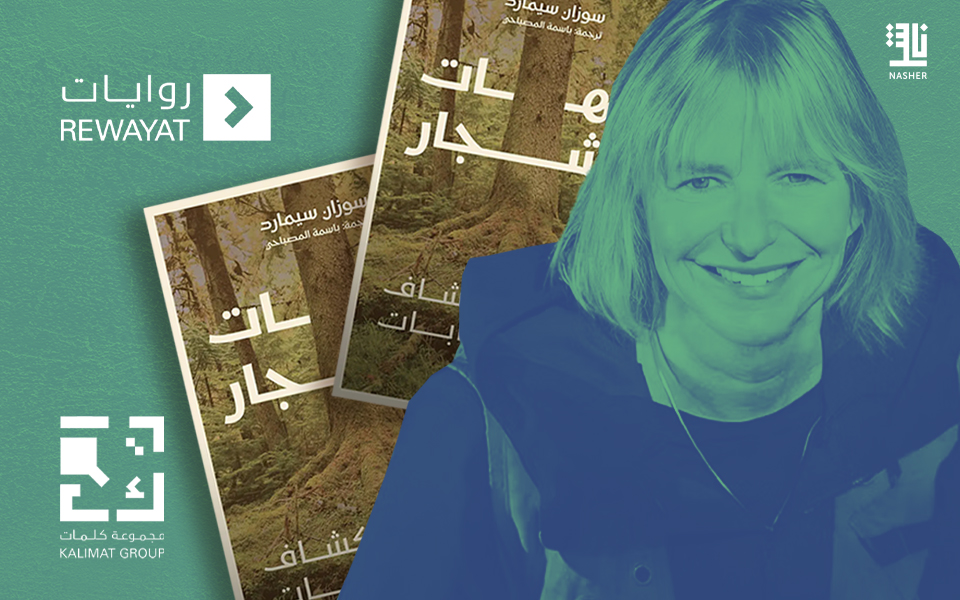While most people associate scientists with objective methods and strict protocols, Dr. Suzanne Simard, an ecology and forestry professor at the University of British Columbia, brings a more intimate and emotional dimension to her work.
In her book The Mother Trees, published in Arabic by Dar Riwayat, a division of Kalimat Group, and translated by Basma Al-Musabbahi, Simard blends her deep scientific knowledge with personal stories, creating a narrative that is both engaging and accessible to a wide range of readers.
Simard masterfully combines her profound research with vivid experiences, leading readers on a journey through forests and revealing the hidden relationships among trees through intricate fungal networks. These networks, which act like sophisticated communication systems, enable trees to exchange chemical signals. At the heart of this system are the ancient “Mother Trees,” which, as Simard explains, play a crucial role in nurturing and guiding younger trees, even transferring their wisdom as they die to help the forest adapt to environmental changes.
Challenging the traditional view of trees as isolated and competitive, Simard presents forests as deeply interconnected and cooperative communities, where trees support one another for the greater good. Her research offers a fresh perspective on nature’s complexity and beauty, urging readers to reflect on the vital role trees play in maintaining ecosystem balance—and inviting them to reconsider humanity’s relationship with the natural world.







